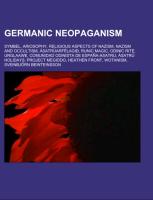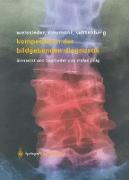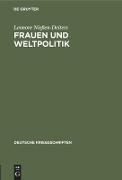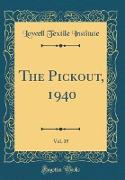Germanic neopaganism
BücherAngebote / Angebote:
Source: Wikipedia. Pages: 49. Chapters: Symbel, Ariosophy, Religious aspects of Nazism, Nazism and occultism, Ásatrúarfélagið, Runic magic, Odinic Rite, Urglaawe, Comunidad Odinista de España-Asatru, Ásatrú holidays, Project Megiddo, Heathen Front, Wotanism, Sveinbjörn Beinteinsson, Neopaganism in Scandinavia, Nine Noble Virtues, Gothi, Odinist Fellowship, Thyle, Allsherjargoði, Eldaring, Kindred, A Walk With Our Ancestors, Samfälligheten för Nordisk Sed, Landsegen, Gods of the Blood, Swedish Asatru Assembly. Excerpt: Germanic Neopaganism (more commonly known as Heathenism or Heathenry, or Germanic Heathenry) is the contemporary revival of historical Germanic paganism. Precursor movements appeared in the early 20th century in Germany and Austria. A second wave of revival began in the early 1970s. Attitude and focus of adherents may vary considerably, from strictly historical polytheistic reconstructionism to syncretist (eclectic), pragmatic psychologist (Jungian archetypal), occult or mysticist approaches. Germanic Neopagan organizations cover a wide spectrum of belief and ideals. Different terms exist for the various types of Germanic Neopaganism. Some terms are specific in reference whereas other are blanket terms for a variety of groups. In a 1997 article in Pagan Dawn, the authors list as more or less synonymous the terms Northern Tradition, Norse Tradition, Ásatrú, Odinism, Germanic Paganism, Teutonic Religion, The Elder Troth (as the name of a specific organization and at the same time an attempt to replace trú with an English equivalent) and Heathenry. Starting in the late 90s, the word Heathenism or Heathenry has gradually been accepted as an blanket term for the all the Germanic Neopagan movements, while other terms have developed into labels for specific cultural branches or denominations within Heathenry. For example Forn Siðr and its equivalents has become a popular self-designation in the Norse Neopagan milieu, while Urglaawe defines the Deitch Heathen movement. Heathen (Old English hæðen, Old Norse heiðinn, Old High German heidan) was coined as a translation of Latin paganus, in the Christian sense of "non-Abrahamic faith". In the Sagas, the terms heiðni and kristni (Heathenry and Christianity) are used as polar terms to describe the older and newer faiths. Historically, the term was influenced by the Gothic term *haiþi, appearing as haiþno in the Gothic Bible of Wulfila for translating gune Hellenis, "Greek (id est gentile) woman" of Mark 7:26, probably with an ori
Folgt in ca. 5 Arbeitstagen



